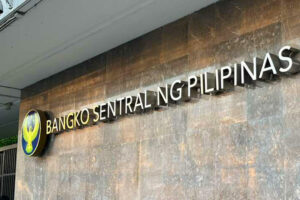PRESIDENT Ferdinand R. Marcos, Jr. urged the Bangko Sentral ng Pilipinas (BSP) to act immediately if US tariff policy pushes inflation higher, the Palace said.
At a briefing on Monday, Presidential Communications Office Undersecretary Clarissa A. Castro said Mr. Marcos made the remarks at a meeting with the BSP, urging it to “immediately address any potential impacts (on the economy) in the coming year.”
“There was a meeting with the BSP where this was discussed,” she said. “It was noted that inflation rates could be affected by what is happening in the US. We will monitor the situation and take action.”
The central bank on March 27 published its financial stability report which indicated that the financial sector is expected to remain robust and well-positioned to absorb shocks, but could face moderate economic risks such as heightened geopolitical tensions, evolving monetary policies in major economies, and potential shifts in US policy.
Inflation eased to 2.1% last month from 2.9% in January and 3.4% a year earlier. This brought the two-month average to 2.5% well within the central bank’s 2-4% target.
BSP Governor Eli M. Remolona, Jr. has expressed concern about the indirect spillovers coming from increasingly aggressive US trade policy.
Since taking office, US President Donald J. Trump has imposed a 20% levy on all Chinese imports and a 25% tariff on all steel and aluminum imports.
He is also planning to impose reciprocal tariffs on countries that tax US imports early next month.
The US is the top destination for Philippine-made goods with exports to the country valued at $12.12 billion last year or 16.6% of total export sales.
Manila’s imports from the US amounted to $8.17 billion or 6.4% of total imports.
The Philippines, a domestic demand-driven economy, has the potential to avoid the worst of the new US tariff regime compared to its neighbors, Moody’s Ratings said in a report last week.
“Indonesia and the Philippines, with smaller surpluses and growing defense ties with the US, are likely to face fewer tariffs,” the credit rater said.
Moody’s Analytics projects Philippine gross domestic product to grow 5.9% this year, weaker than its 6% baseline forecast in November, citing the impact of uncertainty arising from US tariff policies.
The BSP reported on March 29 that business confidence rose in the second quarter, with a confidence index reading of 45.4% against 40.3% in the fourth quarter of last year.
“This is a positive sign, showing that more people trust our government and administration, encouraging investors to allocate their investments within the Philippines,” Ms. Castro said at the briefing.
“The administration will do its utmost to maintain this status or improve upon it so that we can encourage more investors to invest in our country.” — John Victor D. Ordoñez
